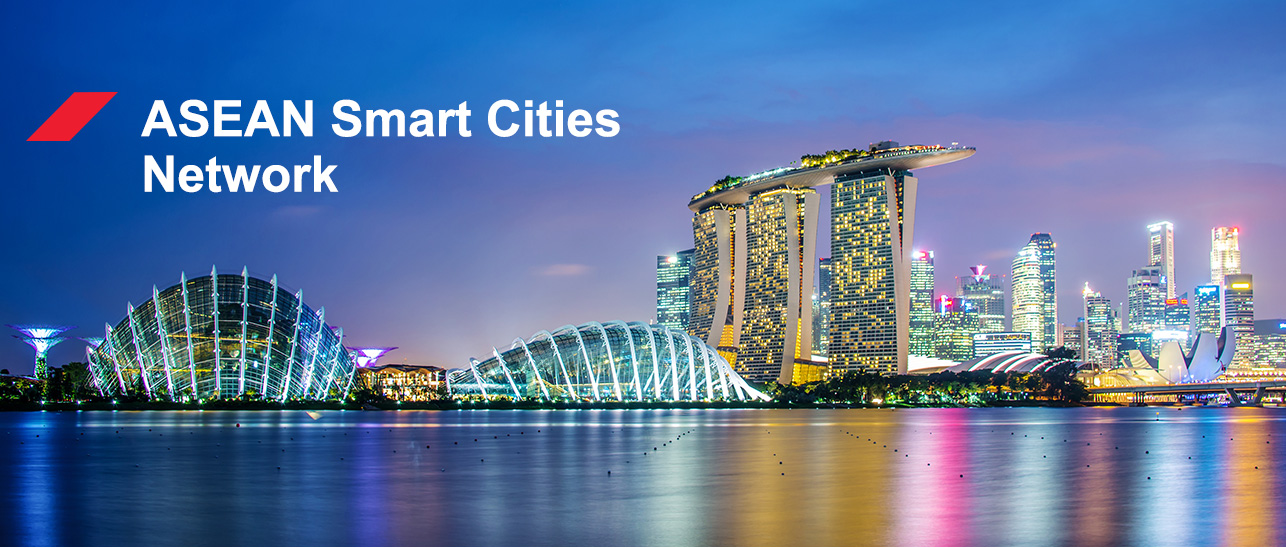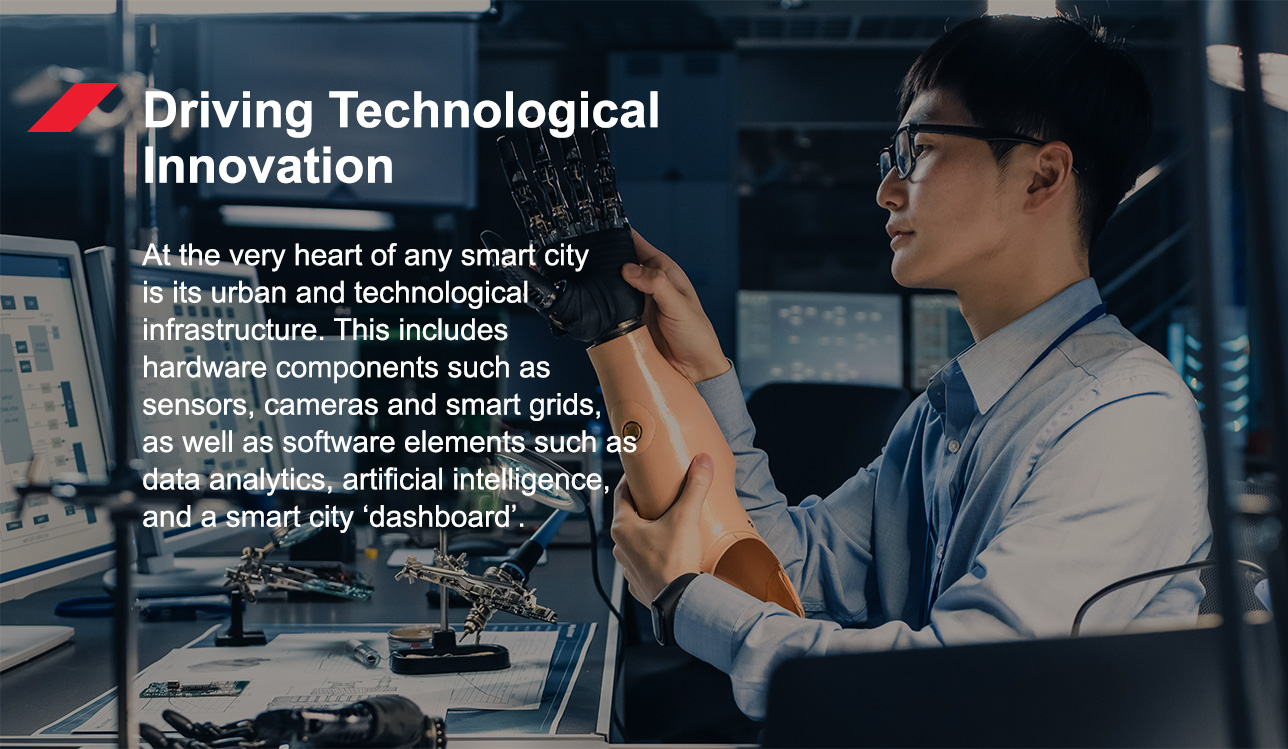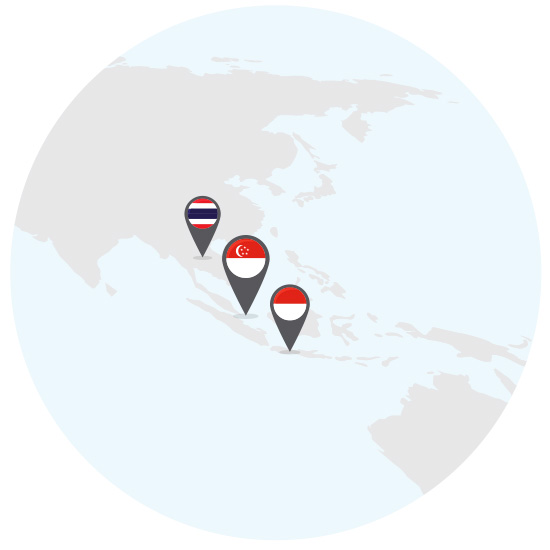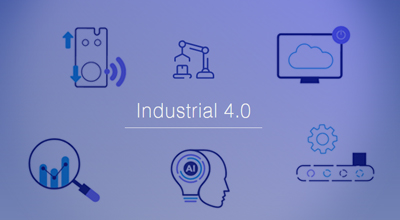Smart Cities in ASEAN:
Powering good Amidst Tough Times
The COVID-19 pandemic has severely disrupted lives and economies across the globe. At the same time, it has also spurred governments to seek out new technological tools and urban solutions that can address the current crisis, as well as drive the next stage of economic growth.
A common response among many governments across the world to the COVID-19 pandemic has been to hasten the development of their smart cities and explore the ways in which smart city technologies can be applied to crisis management and economic development.
According to a McKinsey Global Institute report, smart cities are expected to create 1.2 – 1.5 million new jobs, prevent 260,000 – 270,000 Kilotons of greenhouse gas emissions, and save US$9 billion – US$16 billion on cost of living across ASEAN.
By addressing these urgent economic and environmental challenges, digital services and technologies can help future-proof smart cities against future crises and challenges.
The COVID-19 pandemic has in fact laid bare the importance of smart cities – digital technologies have facilitated telecommuting and global financial transactions, proving to be crucial in the continued functioning of many urban economies.

ASEAN can “use the ASEAN Smart Cities Network to exchange ideas and experiences on using technology to fight COVID-19. For example, technology to enhance contact tracing” .
Singapore’s Prime Minister Lee Hsien Loong
In Southeast Asia, smart cities will play an increasingly important role in generating economic growth and solving complex urban challenges.
Faced with rapid urbanisation, Southeast Asia is expected to see around 100 million people migrate from rural regions to cities . This is complicated by rapid population ageing in countries such as Singapore and Thailand, and the emergence of a middle class in other countries such as Vietnam and Myanmar.
Despite the diversity of their populations and their different stages of economic development, ASEAN member-states are increasingly united by their belief that smart cities may hold the key to the urban and socio-economic challenges that they face.
During the 36th ASEAN summit that was held recently, Singapore’s Prime Minister Lee Hsien Loong argued that ASEAN can “use the ASEAN Smart Cities Network to exchange ideas and experiences on using technology to fight COVID-19. For example, technology to enhance contact tracing”.
Established on 28 April 2018, the ASEAN Smart Cities Network (ASCN) aims to encourage greater cooperation among the 10 ASEAN member-states to foster smart and sustainable urban development. Having initiated the formation of the ASCN when it was ASEAN Chair in 2018, Singapore remains committed to smart city development and cooperation across Southeast Asia.
As Foreign Minister Vivian Balakrishnan had noted in a recent speech, Singapore aims to strengthen the ASCN, which will “reduce trade costs and support sustainable economic growth for all of us in the post-COVID-19 era”.

While the embedding of sensors and smart grids in the urban infrastructure will allow governments to continuously collect data to design and run more efficient cities, cutting-edge software will allow for the rapid analysis of data, allowing both governments and businesses to gain a better understanding of citizen and consumer preferences.

From Singapore’s Smart Nation initiative to the Thailand 4.0 plan and Making Indonesia 4.0, governments across Southeast Asia are driving smart city development and digital transformations. These initiatives will have significant impact on economic and urban development across the region.
With 110 years of experience in operational technology and 60 years of experience in the information technology industry, Hitachi has developed an extensive network of global partners that is focused on co-developing technological solutions to address emerging economic and societal needs.
In Singapore, the development of sustainable built environment and green buildings is led by the Building and Construction Authority (BCA). In 2019, the BCA launched its Super Low Energy Building (SLEB) Smart Hub, a one-stop digital knowledge centre with a centralised national database of energy-efficiency data and cutting-edge green technologies.
At the heart of the SLEB is its ‘Smart Advisor’, an AI and Analytics-driven tool that advises building owners and designers on their buildings’ current energy use and recommends green technologies to obtain higher energy efficiency. This will ease the adoption of green technologies and support the national target to green 80% of buildings in Singapore (measured by gross floor area) by 2030.
Given its expertise in smart digital solutions, Hitachi has been engaged to provide solutions for its SLEB Smart hub.
Whether by enhancing urban security or supporting the development of green buildings, Hitachi’s integrated approach to urban development can go a long way in contributing to the building of smart and sustainable cities. In the immediate horizon, these technologies can help businesses maintain their operations and functionality during the COVID-19 pandemic.
For instance, Hitachi has implemented ‘Hitachi Work Safe’, a technological solution for safe entry and contact tracing at Hitachi Square in Tampines that involves the use of facial recognition and thermal sensing technology to automatically screen and admit employees into the building. This can facilitate the efficient entry of employees and visitors into Hitachi Square, while at the same time prevent the risk of infection clusters.
Hitachi is also developing a platform that can perform multiple Covid-related functions, such as pre-assessing employee health statuses, tracking entry and access to its premises through contactless access. This will ensure both business continuity and employee safety.

A successful smart city should ideally ensure the happiness of its citizens and enhance their quality of life, as well as provide opportunities for personal and community growth that can enhance citizens’ social, economic and environmental values. Thankfully, we now possess the technological possibilities for building smart, sustainable, and liveable cities of tomorrow.
By focusing on powering good, Hitachi’s role in smart city development is very much focused on enhancing and improving the lives of people through Social Innovation. Hitachi seeks to study the real problems faced and solve them via technology, providing effective overall solutions to make lives better and to make the world a better and happier place to live in.
A smart city is more than its digital and urban infrastructure. Smart city technologies and social innovations can contribute towards the happiness and well-being of citizens. For instance, governments can collect public feedback and data through advanced data analytics platforms and apply these insights to perform more ‘people-centric’ city planning.
A good example of this is Hitachi’s efforts to use data and people-flow analysis to understand human flow within the city to ensure more effective location of public amenities such as parks and childcare centres. This will greatly enhance citizens’ quality of life and contribute to greater collective happiness.
This advertorial was written in collaboration with Dr Woo Jun Jie, Policy Researcher at an independent think-tank in Singapore.
- https://www.channelnewsasia.com/news/singapore/asean-summit-pm-lee-calls-for-greater-cooperation-covid-19-12874392
- https://www.channelnewsasia.com/news/commentary/asean-southeast-asia-thailand-chair`manship-2019-11147528
- http://www.mfa.gov.sg/Newsroom/Press-Statements-Transcripts-and-Photos/2020/06/20200622---MFATownHall
- iStock.com/vectorplusb
- iStock.com/Tzido
- iStock.com/chee gin tan
- iStock.com/Delpixart
- iStock.com/gorodenkoff
- iStock.com/AsiaVision
- iStock.com/chingyunsong
Date of Release: March 2021



